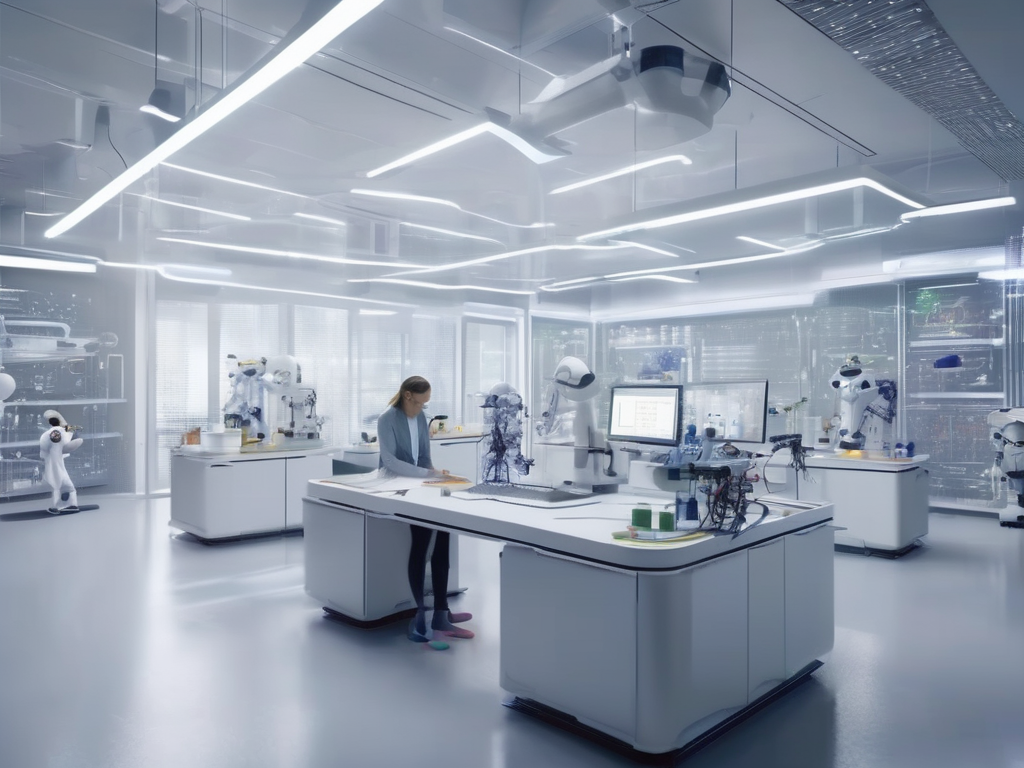Google Research announced a significant advancement in AI-assisted scientific discovery with the launch of their "AI co-scientist" system on February 19, 2025. This multi-agent AI system, based on Gemini 2.0, aims to revolutionize biomedical research by automatically generating hypotheses and research proposals.
Beyond Traditional AI Applications
While Google has been integrating generative AI across its product ecosystem, the AI co-scientist represents a more sophisticated application targeting the scientific research community. Unlike simple chatbots, this system is designed to conduct genuine scientific reasoning and proposal generation.
How the System Works
The AI co-scientist operates as a multi-agent system where different AI models work together in a collaborative framework. Researchers input their research goals, ideas, and references to past research, allowing the system to generate potential research directions.
The system contains multiple interconnected models that process input data and access internet resources to refine outputs. Different agents challenge each other in a "self-improving loop," similar to reasoning models like Gemini Flash Thinking and OpenAI's o3.
Technical Architecture
The system employs several sophisticated components:
Multi-Agent Collaboration: Different AI agents specialize in various aspects of research proposal generation Self-Evaluation: Internal validation processes improve output quality Internet Integration: Real-time access to current scientific literature and databases Reasoning Chains: Step-by-step logical processing for complex scientific problems
Real Laboratory Testing
Most importantly, Google partnered with universities to test AI-generated proposals in actual laboratory settings. The results were encouraging:
Drug Repurposing: The AI suggested repurposing certain drugs for treating acute myeloid leukemia, with laboratory testing confirming viability Liver Fibrosis Treatment: Research at Stanford University validated AI-generated ideas about treatment approaches Novel Research Directions: The system identified previously unexplored research pathways
Human Expert Evaluation
Biomedical researchers who evaluated the system rated the AI co-scientist higher than other specialized AI systems. Experts noted that outputs showed greater potential for impact and novelty compared to standard AI models.
However, this doesn't mean all AI suggestions are valuable. The system requires human oversight and validation to distinguish promising ideas from less viable proposals.
Brainstorming Enhancement
Google positions the AI co-scientist as a sophisticated brainstorming tool rather than a replacement for human scientists. The system can help researchers:
Explore New Directions: Generate hypotheses outside traditional thinking patterns
Analyze Complex Data: Process vast amounts of scientific literature efficiently
Identify Connections: Discover relationships between disparate research areas
Overcome Creative Blocks: Provide fresh perspectives on challenging problems
Accuracy and Reliability
The system includes internal evaluation mechanisms that correlate with scientific accuracy. However, like all generative AI systems, it can produce plausible-sounding but incorrect information.
The self-evaluation ratings help identify higher-quality outputs, but human expertise remains essential for validating scientific merit.
Trusted Tester Program
Google is expanding access through a Trusted Tester program, providing both a user interface and API integration capabilities. This allows researchers to:
Direct Access: Use the co-scientist through a dedicated interface System Integration: Incorporate capabilities into existing research tools Collaborative Testing: Work with Google to refine the system
Research Democratization
The AI co-scientist could democratize access to sophisticated research capabilities, particularly benefiting:
Smaller Research Groups: Access to advanced analytical capabilities without extensive resources Interdisciplinary Research: Bridge knowledge gaps between different scientific domains Graduate Students: Enhanced research training and hypothesis generation support Global Research: Overcome geographic and resource limitations
Scientific Method Enhancement
Rather than replacing the scientific method, the AI co-scientist aims to enhance it by:
Hypothesis Generation: Accelerating the creation of testable research questions Literature Review: Efficiently processing vast amounts of scientific literature Pattern Recognition: Identifying subtle connections across research domains Research Planning: Structuring comprehensive research proposals
Limitations and Considerations
Google acknowledges that calling the system a "co-scientist" may be grandiose. The AI cannot truly understand or offer genuine insights—it processes patterns in data rather than conducting actual scientific reasoning.
Key limitations include:
Pattern Recognition: The system identifies patterns rather than understanding underlying science Validation Dependency: All outputs require human expert validation Accuracy Concerns: Potential for generating plausible but incorrect hypotheses Domain Limitations: Current focus primarily on biomedical research
Future Applications
The research team envisions expanding the system to other scientific domains beyond biomedicine. Potential applications include:
Materials Science: Novel material property predictions and synthesis approaches Environmental Research: Climate modeling and sustainability solutions Physics: Theoretical framework development and experimental design Chemistry: Reaction pathway optimization and compound discovery
Industry Implications
The AI co-scientist represents a significant step toward AI systems that can participate meaningfully in scientific discovery. While not replacing human scientists, it could accelerate research by:
Reducing Research Time: Faster hypothesis generation and literature analysis Improving Research Quality: More comprehensive consideration of relevant factors Enabling Novel Discoveries: Identifying unexplored research directions Enhancing Collaboration: Facilitating interdisciplinary research approaches
This development signals the growing sophistication of AI systems in handling complex, creative tasks that require both analytical reasoning and innovative thinking.
Ready to implement these insights?
Let's discuss how these strategies can be applied to your specific business challenges.
You might also like
More insights from AI Technology
